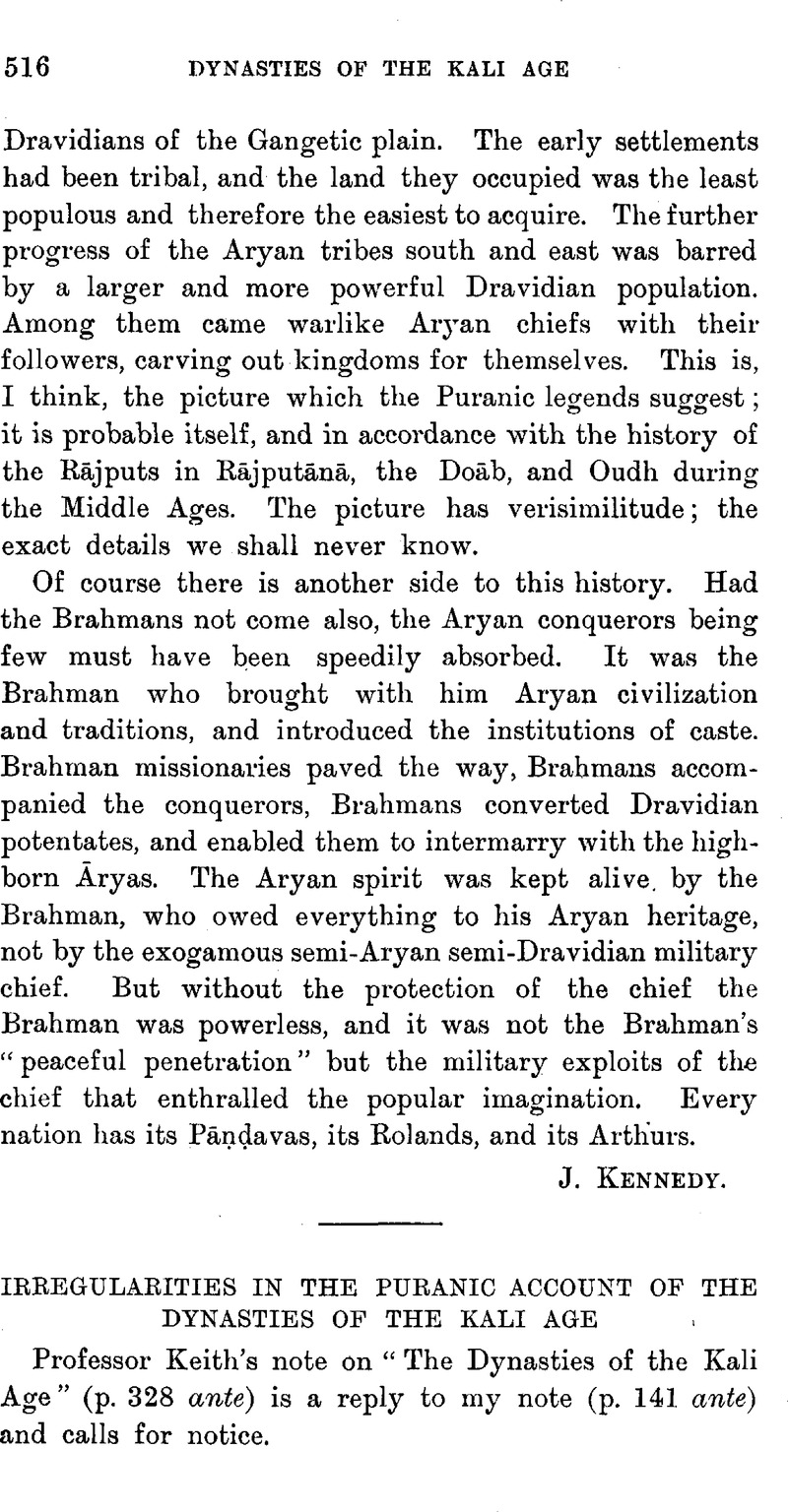No CrossRef data available.
Published online by Cambridge University Press: 15 March 2011

page 517 note 1 JRAS., 1914, p. 1023.Google Scholar
page 517 note 2 So Professor Keith himself couples bhaviṣye kathitān at the beginning of his statement quoted above; and quite rightly.
page 518 note 1 JRAS., 1914, p. 1028.Google Scholar
page 518 note 2 So also Nityasvarūpa in Hindi, ab Magadh-deś ke rājāō kī saṁtati maĩ tum se kahtā hu. Śukadeva virtually implies the same, atha bhaviṣyān Magadhâdhipān vaktum pratijānīte. I have to thank Sir G. Grierson for these extracts.
page 518 note 3 He translates the passages thus: “In the stanza ‘Of this’ (asya: i, 164. 1) in the hymn, three brothers are spoken of in the third person (parokṣa)—I will explain (them)”; and “and so hear (what) the reasons (are)”.
page 519 note 1 First JRAS., 1914, pp. 739–42Google Scholar, Secondly, JRAS., 1914, pp. 739, 742–3, 1031 note; 1915, p. 143 note.Google Scholar
page 519 note 2 pp. 330–1 ante, which do not really explain his shifting of his ground, as will appear from comparing the pages cited in the preceding note and noting what his ground was originally.
page 520 note 1 JRAS., 1914, pp. 739 and 742–3Google Scholar, where the statement is quoted; 1915, p. 142, n. 2. Professor Keith's remarks on p. 331 ante do not touch the statement which is the important fact, but refer to the reason which I did not discuss as being secondary (JRAS., 1914, p. 743Google Scholar). His new rendering of his words (p. 143, note) still corroborates that statement.
page 520 note 2 JRAS., 1914, p. 743Google Scholar. The “total lack of the historical sense” is a fact, apart from any explanation of it. His reference to pessimism on p. 331 conveniently ignores the fact.
page 520 note 3 I had prepared a note to correct the mistake, and sent it in for publication in the last part of the Journal before I knew that Professor Keith had written his reply; but, as he had sent that in, it was considered better that my correction should wait and be incorporated in this my reply. Otherwise it would have appeared at the same time as his reply.